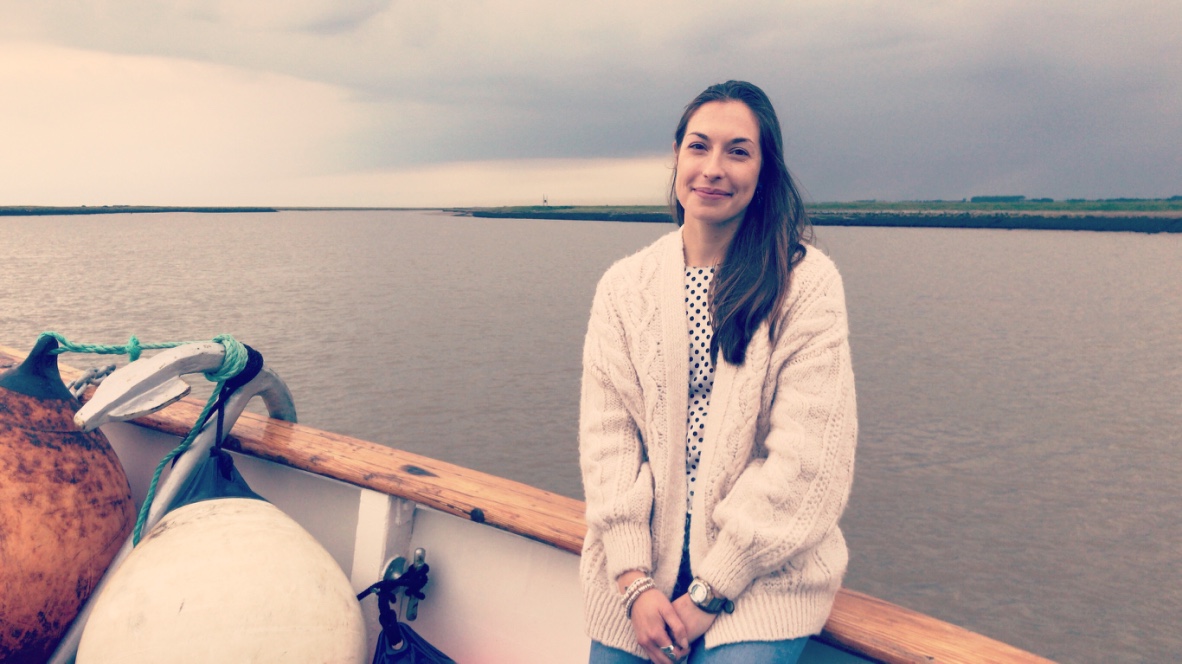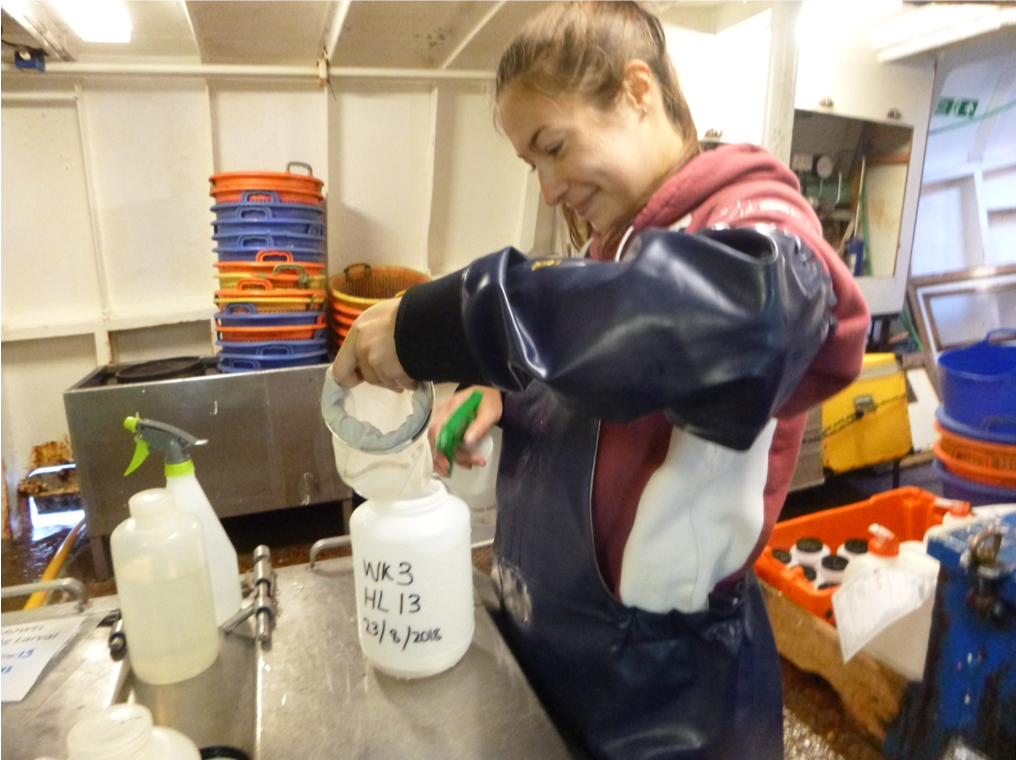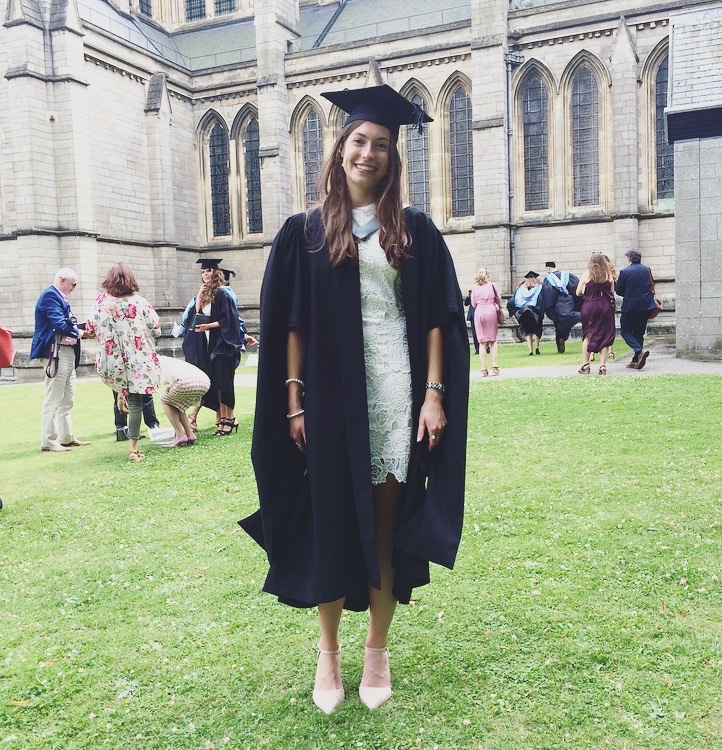We are looking back on some of our MSc graduates who have excelled in scientific research, ecology and conservation around the world since studying with us.
Today we meet Fiona who graduated from MSc Conservation Science & Policy in 2016 and is now the Executive Assistant and Policy Officer at Mindfully Wired Communications.
Hi Fiona, it’s been a few years since you studied with us, why don’t you tell us a bit about your career in that time that led you to where you are now?
Upon graduating, I was lucky enough to secure a short-term Research Assistant role at the University of Exeter’s Penryn Campus working with Dr Matt Witt. I led the development of the Myanmar Marine Biodiversity Atlas through advanced use of Geographic Information Systems (GIS) to produce a collection of maps of the oceanographic conditions, marine biodiversity, and anthropogenic activities occurring within Myanmar’s maritime limits. I subsequently undertook an internship with the Sustainable Seafood Team at ClientEarth, one of Europe’s leading environmental law charities. I then started work as a Marine and Environmental Consultant at Brown and May Marine, responsible for researching and writing Fisheries Impact Studies and Environmental Impact Assessment reports on fish/shellfish ecology and commercial fisheries. I also managed the fisheries liaison activities for several offshore wind farms and subsea cable developments, collaborating closely with UK fishermen and learning to build successful working relationships with marine stakeholders. I even gained sea-going experience for survey work, including a two-week herring larval survey in the Moray Firth, Scotland, and numerous fishing gear observation trips on a variety of vessel types.

Two and a half years later, I decided it was time for a new challenge and a change of scenery. In February 2020 I returned to the South West, settling in Bath, Somerset, before securing my current role as Executive Assistant and Policy Officer at Mindfully Wired Communications (MWC), just two weeks before the UK’s first coronavirus lockdown!
We are glad you have had such wonderful opportunities, could you please tell us a little bit more about your current role with MWC?
In this role, I liaise closely with the Director while also working on a number of marine communications projects under the umbrella of the Science and Policy team. My responsibilities include: leading on MWC’s EU Commission Fisheries Advisory Council work and attending meetings in a rapporteur function; copy writing, editing, and proofing science and policy reports; providing Secretariat services; contract and client management; supporting project bids; scientific literature research; events coordination and delivery; social media production; graphic design; and various business management tasks.
What first attracted you to study your MSc at the University of Exeter, Penryn Campus?

The Conservation Science & Policy degree course provided a unique and fascinating opportunity to explore both the scientific and policy-oriented aspects of conservation, and the nuances of its implementation in a real-world context. Having also formerly studied for my undergraduate degree at the University of Exeter’s Streatham Campus, I had an affinity to the University, and so staying on for my Master’s felt like the natural path to take. The course was delivered by internationally-recognised experts and offered the flexibility to pursue the areas I had greatest interest in, such as marine conservation. It also promised associations with conservation practitioners from a wide range of governmental and non-governmental organisations.
What did you enjoy most about studying your MSc?
I loved the rich and varied content of my Master’s course and was grateful for the freedom to choose my own modules. The lecturers were always brilliant – they were fun, engaging, and always happy to hear from their students. I enjoyed the intimacy of the University and the sense of community. As a small campus in quiet, picturesque Cornwall, I think it attracts a certain kind of person. I loved being surrounded by like-minded, outdoorsy people, and I met some of my best friends whilst studying at Penryn.
How do you think the MSc helped to prepare you for your career?
Whilst studying for my Master’s, I developed strong written communication and scientific reasoning skills. These have proven beneficial in my current role for rapporteuring, copy writing, editing, and proofing marine science and policy reports. My degree also instilled in me a deep-rooted knowledge of and interest in UK/EU marine policy and legislation. This provided a foundation upon which to build my expertise and experience of conservation research, seafood sustainability, and commercial fisheries. The GIS skills I developed during my research project were invaluable for my subsequent roles of Marine Mapping Research Assistant and Marine and Environmental Consultant, where I would frequently use spatial mapping to visualise oceanographic conditions, marine biodiversity, and fishing activities.
 Why did you choose to make the move from research and consultancy to a career in science communication?
Why did you choose to make the move from research and consultancy to a career in science communication?
I chose to pursue a career in marine communications because I am deeply committed to working for the marine environment, and wish to play my part in securing a positive and sustainable future for the ocean and the communities who rely on it. I adore the variety in my job, from rapporteuring the EU Commission’s Fisheries Advisory Council meetings, to copy editing and proofing marine science and policy reports, to branding and designing seafood sustainability campaigns and social media assets. I’m always learning and I love knowing I am making a difference, however small.
Do you have any advice for those looking to pursue something similar?
Your ability to distill complex science into compelling and accessible language is integral if you wish to become an effective science communicator. My first piece of advice would be to practice this. When you read a scientific paper as part of your course, take five minutes at the end to summarise it. Focus on making your words understandable, engaging, and intriguing to a reader with no scientific knowledge. My second piece of advice would be to read up on values-based communication, and think about how we might talk about the ocean and our natural environment in ways that help us deepen our connection to them.

Finally, do you have any plans for the future?
I am extremely happy in my current role at Mindfully Wired Communications. Having only joined the company one year ago, there’s still a lot to learn and I am loving every minute. It may have taken four years of hard work and soul searching to reach this point but I believe I have finally found my calling. Work doesn’t feel like work when you’re doing what you love. For the moment, I’m more than content where I am.
Thank you Fiona!
If you want to read more profiles from MSc Conservation Science & Policy graduates follow this link or explore our Graduate in Focus homepage to learn more about the degree programmes we have on offer!

